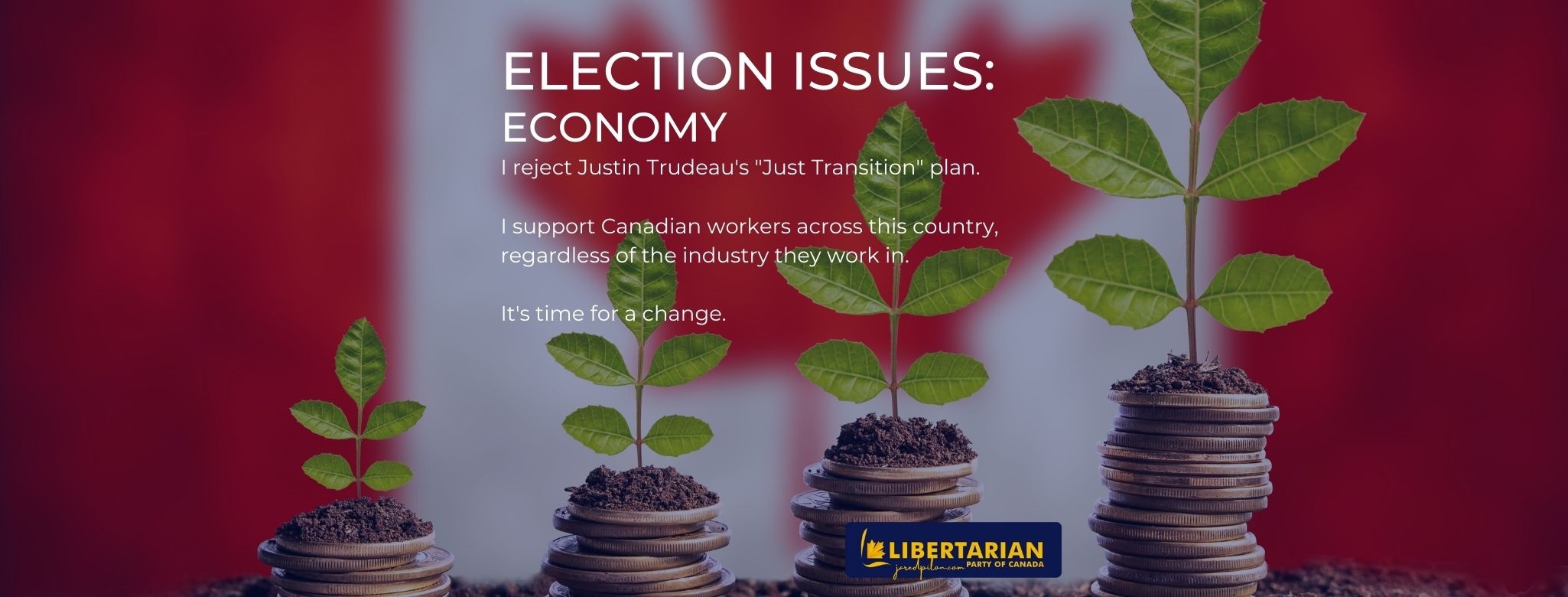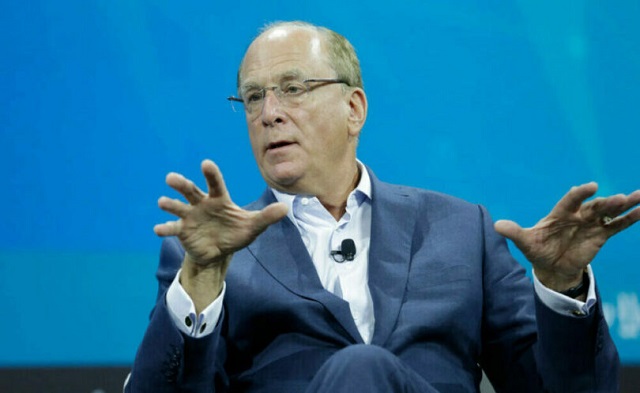Economy
2021 Election Issues: Economy

-
Immediately repeal Bill C-48 (tanker ban) and Bill C-69 (no more pipelines).
-
Radically decentralize the responsibilities of the federal government to the areas of national security, federal courts and a scaled back RCMP service.
-
With the provinces now responsible for collecting their own taxes instead of relying on equalization payments, Canada Health Transfers and Canada Social Transfers, competition will immediately be ramped up.
-
Provincial completion will lead to reductions in red tape and taxes. Provinces who were traditionally reliant on federal transfers will now advocate for pipelines and other major infrastructure projects in an effort to bolster their local economies.
Economy
Federal budget: You can’t solve a productivity emergency with tax hikes

News release from the Montreal Economic Institute
- Ottawa still has no plan to return to a balanced budget.
- Under Justin Trudeau, the federal government has hired over 98,000 new bureaucrats.
Montreal, April 16, 2024 – The increase in the capital gains tax inclusion rate will further exacerbate Canada’s productivity lag, asserted the Montreal Economic Institute in response to the publication of the federal budget this afternoon.
“Canada’s productivity is in crisis and the best way to get it back up is to attract new investments,” explains Renaud Brossard, Vice-President of Communications at the MEI. “And few are those who have been able to lure investments and job creators with promises of higher taxes.
“With this budget, the Trudeau government is shooting us in the foot.”
In the budget, the Trudeau government has announced the capital gains inclusion rate from 50 per cent to 66 per cent for capital gains superior to $250,000 per year.
Last March, the deputy governor of the Bank of Canada, Carolyn Rogers, spoke of a “productivity emergency” in Canada.
Canadians rank second to last among G7 countries in terms of productivity per hour worked, according to an MEI study published last August.
The Institute explains that this lag arises from a shortfall in private non-residential investment. In 2018, this investment amounted to an estimated $27,307 per American worker, but only $17,389 per Canadian worker.
“Every dollar the government expects to subtract from the pockets of investors with this tax hike is a dollar of potential investment lost,” explains Brossard. “It’s time for the Trudeau government to realize it doesn’t have a revenue problem, but rather a spending problem.”
The budget tabled by the Trudeau government today forecasts a shortfall of $39.8 billion for the year 2024-2025.
High interest rates are contributing to this situation, with interest payments on the federal debt estimated to reach $54.1 billion dollars this year, up 14.6 per cent over last year.
The MEI observes that one of the major sources of increased spending is the massive hiring of federal public servants under the Trudeau government.
Since the first Trudeau budget in 2016, the federal public service workforce has grown by more than 98,268 employees. Considered in terms of the number of government employees per Canadian, this represents a 28% increase according to an MEI study published in January.
“The explosion in the number of bureaucrats in recent years is symptomatic of a government that has lost all control over the growth of its spending,” explains Brossard. “There are now 28 per cent more federal public servants per capita, but very few Canadians would tell you that Ottawa is doing 28 per cent more for them.”
* * *

The MEI is an independent public policy think tank with offices in Montreal and Calgary. Through its publications, media appearances, and advisory services to policy-makers, the MEI stimulates public policy debate and reforms based on sound economics and entrepreneurship.
Business
US firms like BlackRock are dropping their climate obsession while Europe ramps theirs up

Larry Fink on stage at the 2022 New York Times DealBook on November 30, 2022. in New York CityPhoto by Thos Robinson/Getty Images for The New York Times
From LifeSiteNews
By David James
As U.S. firms such as BlackRock and JPMorgan Chase continue to distance themselves from the ESG and ‘climate change’ agendas, Europe has been moving aggressively in the opposite direction, suggesting a rift is forming on the global economic landscape.
The climate change debate is usually thought to be focused on scientific analyses of the earth’s atmosphere. But that is only what is on the surface. It is also very much about money and politics and there has been a big shift that looks likely to threaten support for the net zero initiative. It may lead to a deep economic and political rift between the U.S. and Europe.
Estimates of the cost of decarbonizing the economy by 2050 have varied, but it is generally agreed that it is a financial bonanza. Goldman Sachs is at the low end with a modest $80 trillion while Bank of America estimates an extraordinary $275 trillion, about 10 times the current value of the U.S. stock market.
The finance sector, dizzy with the prospect of a huge investment opportunity, imposed a metric on corporations called Environmental, Social and Governance (ESG), a mechanism for demanding that companies go down the net zero route – and also comply with diversity equity and inclusion (DEI) requirements, the “S” part of ESG. Corporations that did not cooperate were threatened with a loss of support in the market and lower relative share prices.
That trend is starting to reverse. BlackRock, JPMorgan Chase, and State Street recently exited from Climate Action 100+, a coalition of the world’s largest institutional investors that pledges to “ensure the world’s largest corporate greenhouse gas emitters take necessary action on climate change.” The passive fund Vanguard, the world’s second largest, exited over a year ago.
These four fund managers oversee assets of about $25 trillion, which is approximately a quarter of the entire funds under management in the world.
They are changing direction for two reasons. First, there was an implicit bargain with ESG, whereby compliant companies would not only get to save the environment but also get to see their share prices outperform non-compliant companies. It is not turning out that way. In fact, better returns have come from investing against ESG-compliant companies.
More compellingly, 16 conservative state attorneys general in the U.S. have demanded answers from BlackRock’s directors regarding the Climate Action and ESG initiatives. Other fund managers and banks have also attracted unwanted scrutiny.
Nothing concentrates the mind of fund managers more than the prospect of clients withdrawing their funds – in this case state government pension money. Larry Fink, chief executive of BlackRock, is now saying he does not think it is helpful to use the term ESG, having been one of the most aggressive advocates. In his 2022 letter to CEOs he was issuing veiled threats to companies not complying with ESG. In 2024, he omitted the term entirely.
Meanwhile in Europe, very different choices are being made. The European Union (EU) is looking to impose sustainability reporting standards on all medium and large businesses. The intention is to have European companies set up a new accounting system by the end of the decade. Rather than recording financial transactions, it will instead aggregate data related to climate, pollution, especially carbon dioxide emissions, biodiversity and social issues.
As one (anonymous) analyst writes: “It is a very detailed control system for European companies where the European Commission can, in the future, dictate anything it wants – and punish for any violations any way it wants. Apart from the crazy regulatory load, this initiative can only be seen as a direct seizure of operational control of European companies, and thereby the European economy.”
So, while the U.S. looks to restore an unsteady version of capitalism, Europe is heading towards some kind of climate-driven socialism.
The EU plan seems to be to eventually direct their banks’ lending, which would radically undermine the region’s free-market system and establish something more like communist-style centralized control.
This does not mean U.S. governments and bureaucrats will stop pushing their climate agenda. A court case brought by the city of Honolulu, for example, is one of several attempts to bankrupt the American energy industry. But when the big institutional money changes direction then corporations and governments eventually follow.
The situation is further complicated by the emergence of the expanded BRICS alliance, which will soon represent a bigger proportion of the world economy than the G7. Saudi Arabia, Iran, United Arab Emirates, Ethiopia and Egypt will be added to the original group of Brazil, Russia, India, China and South Africa.
The BRICS nations will not allow the West’s climate change agenda to reshape their polities. Most of them are either sellers or heavy consumers of fossil fuels. Both India and China are increasing their use of coal, for instance, which makes Western attempts to reduce emissions largely pointless.
The promise that hundreds of trillions of investment opportunities would come from converting to net zero was always just a financial projection, mere speculation. The scale of transiting to a decarbonized economy would be so enormous it would inevitably become a logistical nightmare, if not an impossibility.
Energy expenditure represents about an eighth of the world’s GDP. Oil, natural gas and coal still provide 84 percent of the world’s energy, down just two per cent from 20 years ago. Production of renewable energy has increased but so has overall consumption. Oil powers 97 percent of all transportation.
Relying solely on renewable energy was never realistic and now that the financial dynamic is changing the prospects of achieving net zero have become even more remote. As the finance website ZeroHedge opines: “Both the DEI and ESG gravy trains on Wall Street are finally coming to an unceremonious end.” Financial markets continually get seduced by fads; the ESG agenda is starting to look like yet another example.
-

 Business2 days ago
Business2 days agoDecarbonization deal opens new chapter in Alberta-Japan relationship
-

 COVID-192 days ago
COVID-192 days agoCDC Quietly Admits to Covid Policy Failures
-

 COVID-192 days ago
COVID-192 days agoTrudeau gov’t still receiving COVID shots while throwing away $1.5 billion worth of expired jabs
-

 Great Reset2 days ago
Great Reset2 days agoClimate expert warns against extreme ‘weather porn’ from alarmists pushing ‘draconian’ policies
-

 Brownstone Institute2 days ago
Brownstone Institute2 days agoDeborah Birx Gets Her Close-Up
-

 Health1 day ago
Health1 day agoSetback for the Transgender movement: Michael Shellenberger on leaked files revealing medical malpractice on children and vulnerable adults
-

 Bruce Dowbiggin1 day ago
Bruce Dowbiggin1 day agoOJ Trial: How It Launched Cable News And Destroyed MLK’s Legacy
-

 Alberta1 day ago
Alberta1 day agoBuilding a 21st century transit system for Calgary





